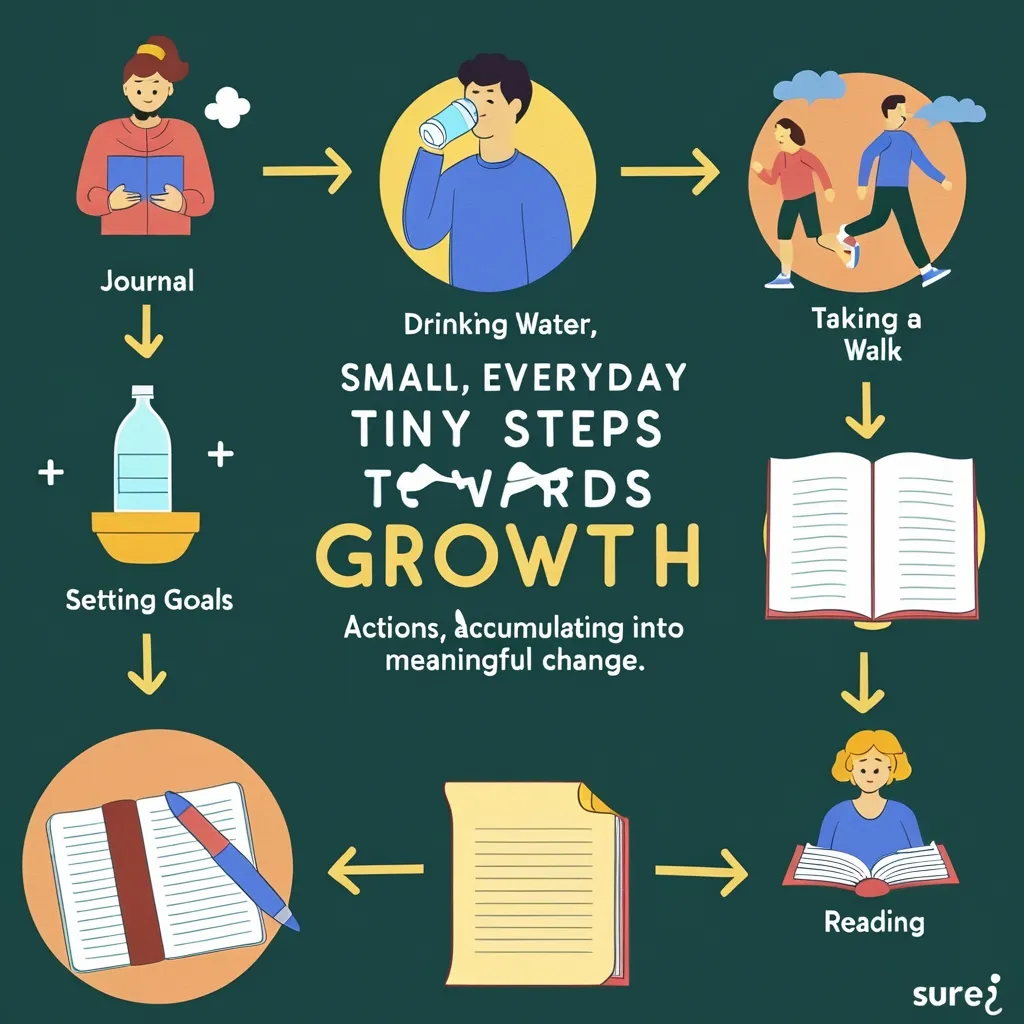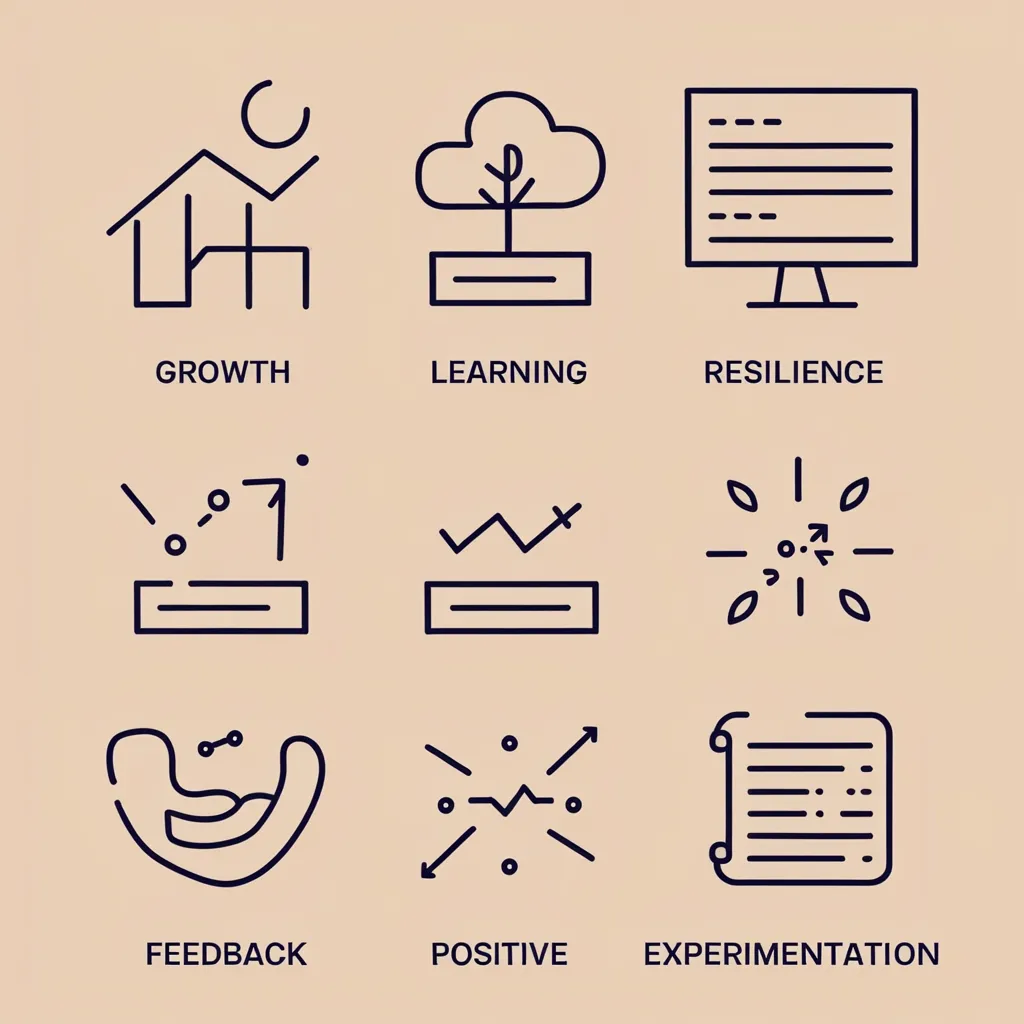In a world where we’re constantly striving for personal and professional growth, we’re usually bombarded with advice to make massive changes to our habits and routines. But more often than not, this only leads to stress and failure. There’s an alternative, though—micro-habits. These are tiny, manageable actions that fit seamlessly into our daily lives and hold the key to meaningful growth without overwhelming us.
The Charm of Micro-Habits
Micro-habits are small, almost negligible actions or behaviors that you can easily slot into your daily schedule. Unlike conventional habits that might demand a huge effort or drastic change, micro-habits are so quick and simple that they’re nearly impossible to skip. Imagine doing two minutes of deep breathing, jotting down one thing you’re grateful for, or just drinking a glass of water first thing in the morning. These are micro-habits.
The elegance of micro-habits is in their size. Because they are so small, they get past the usual resistance we experience when trying to build new habits. Over time, these minuscule acts add up, leading to substantial positive change without the feeling of being overwhelmed.
Why Micro-Habits Are So Effective
Traditional habits come with high expectations. We’re often told to “go big or go home,” which leads us to set ambitious goals that are hard to stick to. When the goals are too grand, failure is more likely, leading to disappointment and discouragement.
Micro-habits minimize the stress and anxiety tied to larger tasks. Because they’re so easy to accomplish, they boost our self-worth and promote a positive self-image. Each tiny win improves mental well-being and provides a steady sense of achievement.
Getting Started with Micro-Habits
Integrating micro-habits into your daily life is about starting small. Pick just one micro-habit to focus on. The idea is simplicity. Whether it’s drinking a glass of water in the morning or noting down one thing you’re grateful for each day, choose something that feels effortless. By zeroing in on one habit at a time, you guarantee consistency without feeling swamped.
The 2-Minute Rule
Ever heard the 2-Minute Rule? It’s a lifesaver. Popular among productivity pros, it says if a task takes less than two minutes, do it right away. It’s perfect for micro-habits. Want to start flossing? Begin with just one tooth. The trick is to make the starting point so easy you can’t say no.
Habit Stacking
Another useful technique is stacking your new micro-habit onto an existing routine. Say you want to read more—why not read a page after you brush your teeth at night? This method, known as habit stacking, creates a natural cue for your new habit, ensuring you remember it.
Tracking Micro-Habits
Monitoring your progress is satisfying. Use a journal, calendar, or app to tick off each day you complete your micro-habit. Watching your successes line up can be super motivating and helps keep you on track.
Examples of Micro-Habits
Small actions can lead to big changes. Here are some examples:
- Daily Goals: Start each day by setting clear, simple goals to maintain focus.
- Industry Reading: Spend 10-15 minutes a day on articles or reports in your field to stay updated.
- Networking: Connect with a new professional in your industry every week for gradual network expansion.
- Skill Development: Dedicate a few minutes daily to learning a new skill or honing an existing one through online courses or practice.
Boosting Your Career with Micro-Habits
In today’s fast-changing work environment, staying ahead means being adaptable and committed to constant learning. Micro-habits can have a big impact on your career. For instance, spending a few minutes each day reading about industry trends or setting goals can significantly boost your knowledge and focus.
Consistent Progress and Building Discipline
Micro-habits ensure steady progress in your career, making improvement a daily habit. Regularly practicing these habits reinforces self-discipline and helps establish a productive routine. Though each step may be small, over time they can lead to significant professional growth and success.
Personal Growth and Well-Being
Micro-habits aren’t just for career growth; they can also vastly improve your personal development and well-being. For example, spending a few minutes journaling each day can help you better understand yourself and your emotions. This fosters positivity and personal growth.
Even a short daily walk can get your body moving and improve your mental health. Listening to podcasts or audiobooks while walking or doing housework is another way to multitask and learn something new.
The Science Behind Micro-Habits
The human brain loves small, consistent actions. Performing a beneficial task releases a burst of dopamine, the neurotransmitter linked to pleasure and motivation. This reward system is crucial for forming habits, making it easier to adopt and stick with new behaviors.
Neuroplasticity and Building Habits
Neuroplasticity, the brain’s ability to adapt and change in response to stimuli, plays a huge role in building new habits. By intentionally and repetitively engaging in a new behavior, you can rewire your brain to support these positive habits.
Embracing Small Changes
Micro-habits remind us that significant change doesn’t always require massive effort. Sometimes, it’s the tiniest, most consistent steps that lead to the biggest transformations. By focusing on small daily actions, you can make significant progress in both your personal and professional life.
Real-Life Success with Micro-Habits
Many people have found huge success with micro-habits in various aspects of their lives. For example, starting the day working on your most important project, even if for just 30 minutes, can make a huge difference. Using a habit tracker and including short bouts of physical activity or outdoor time early in the day can also be greatly beneficial.
Cleaning or organizing something early, like emptying the dishwasher or folding laundry, can make you feel productive and set a positive tone for the day. Daily walks, especially outside, can vastly improve physical and mental health. Even small actions like checking in with someone you care about or doing something nice for someone each day can have a big impact on your relationships and overall well-being.
Conclusion
Micro-habits prove that small actions can lead to big changes. They show us significant change can be achieved through tiny, consistent steps. By weaving micro-habits into your routine, you can create lasting changes in your life, boost career growth, and enhance your overall well-being. A thousand-mile journey begins with a single step—or in this case, a single micro-habit. Start embracing the power of small changes and watch as they lead to big results in your life.






